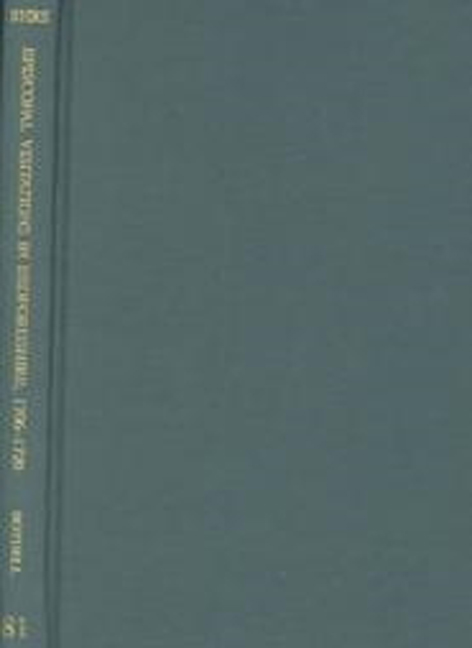Summary
Visitations
This volume contains the returns from Bedfordshire parishes to interrogatories circulated to the parish clergy of the diocese of Lincoln by Bishops William Wake and Edmund Gibson on their triennial visitations. Wake was Bishop of Lincoln from 1705 to 1716 (in which year he became Archbishop of Canterbury), and Gibson succeeded him at Lincoln from 1716 to 1723.
Bishops of the established church were bound to follow the medieval practice and every three years go round their diocese to investigate the state of the parishes and clergy, so as to discover and correct any disorders. Between visitations, the archdeacons had the major role in investigating wrongdoing.
Some of the early evidence for the visitation system in Lincoln Diocese is described in The State of the Church, which mentions an episcopal visitation of the Bedford archdeaconry in 1571, and the volume contains also one or two extracts for Bedfordshire from the returns of the episcopal visitation of 1607. At Tempsford, Clement Hales and his wife did not attend church; and at Woburn Henry Bell, the parish clerk, churched a woman in William Astry’s house without leave of the incumbent. This is of particular interest, because by 1706 Woburn is the only Bedfordshire parish omitted from all visitation returns. Through the efforts of the Russell family, Woburn had successfully claimed to be exempt from the bishop’s jurisdiction.
The Toleration Act of 1689 gave the established church a new problem - how freedom of worship had affected the attendance at parish churches. The Compton return of 1676 gave the approximate number of dissenters, papists, and supporters of the established church in each parish in the province of Canterbury in that year, but a considerable time had passed since 1676. Bishop William Wake decided on a new style of episcopal visitation, and in 1706, 1709 and 1712 circulated a questionnaire to his clergy.
The questionnaire of 1706 asked about the patron and the living, and whether it was a rectory or a vicarage; how many families lived in the parish; the number of dissenters and meeting houses; the value of the living; if there were endowed schools or almshouses; the names of local gentry; and (curiously enough) whether there were any antiquities of note in church or parish.
- Type
- Chapter
- Information
- Episcopal Visitations in Bedfordshire, 1706-1720 , pp. ix - xviPublisher: Boydell & BrewerFirst published in: 2024

